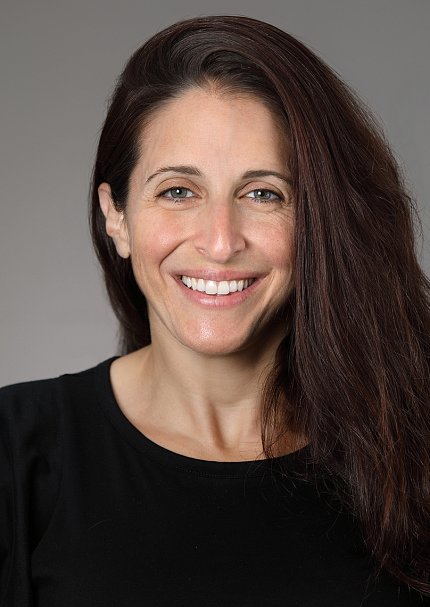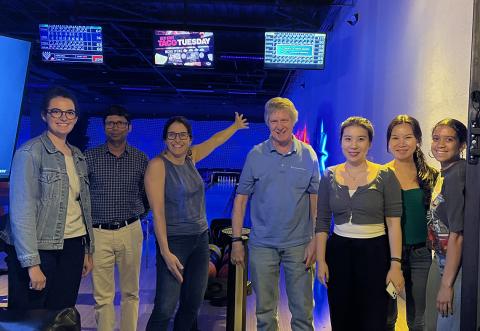Safe, Supported, Mentored
Samara Finds Her Calling at NIH
Honoring Women of NIH
In recognition of Women’s History Month, the NIH Record is celebrating the many talented, driven women working at NIH. Throughout March, we’re featuring stories of investigators and administrative leaders from across the agency.

In the lab she runs, Dr. Nadine Samara strives to be the mentor she wishes she had while trying to find her calling. The mentors she eventually found, who guided her through graduate school and post-graduate life, continue to be her primary support system.
Samara studies oral disease-causing bacteria at the National Institute of Dental and Craniofacial Research (NIDCR), where she heads the structural biochemistry unit.
Before coming to NIH, Samara spent years unsure of her career path. She attributed the delay to a lack of mentorship, resources and hands-on experience during college. And, she had many interests.
One thing, though, was certain. “My dad is a physician and I knew I did not want to be a [medical] doctor,” she said. “I didn’t have a desire to directly treat people or perform surgery.”
Born in New York, Samara grew up in Saudi Arabia, then moved to Lebanon for high school and college. While studying chemistry at the American University of Beirut, she was researching peptides and pondering career options. Her senior advisor suggested she pursue a doctorate, specifically at Rutgers University where she could continue their peptide project.
At Rutgers, Samara still wasn’t excited about a specific subject. But then came a defining moment when she attended a seminar on structural biology and crystallography.
“This is the most amazing research I’ve ever seen,” she recalled thinking. She then headed up the road to Princeton for a research position and went on to get her doctorate in molecular biophysics at Johns Hopkins University.
Samara came to NIH in 2011 as a structural biologist at the National Institute of Diabetes and Digestive and Kidney Diseases. Four years later, she transitioned to staff scientist at NIDCR.

“My proudest achievement is that I managed to somehow, with two young children at home, set up a lab right before the pandemic started, getting it going and recruiting people who feel safe and supported and mentored in my group,” said Samara, who also is an Earl Stadtman tenure-track investigator.
Samara’s lab studies polysaccharide biosynthesis, namely, the sugars that bacteria make and use to evade the host immune system. Bacteria produce a protective matrix consisting of proteins, DNA and polysaccharides, called biofilm.
“We study the enzymes that make the sugar chains in our biofilm,” Samara explained. “If we understand these enzymes, maybe we can target them, or the polysaccharides they make, for therapeutics for oral diseases.”
Samara said she’s grateful for autonomy in the lab and her flexible schedule. But “I’ve recently had challenges as I became more senior in my position,” she said.
As a woman in science, she said, implicit biases remain. For example, she has received frustrating comments that were not directed at her male colleagues in the same situation. These seemingly little biases add up, she noted.
Her advice? “Surround yourself with supportive people. That’s a very valuable component of my experience.”
